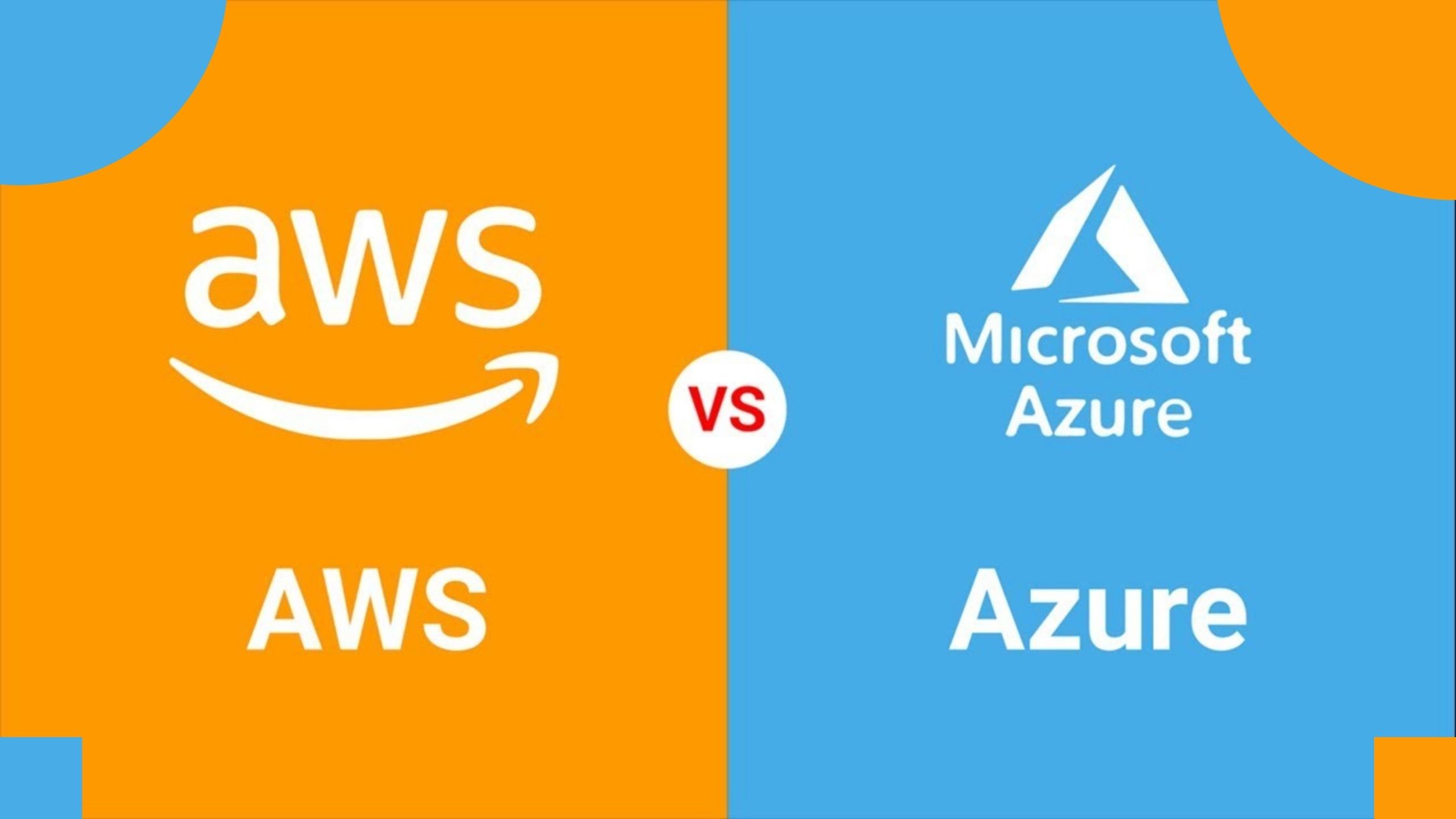
The cloud computing business has seen fast expansion, with many cloud providers, technologies, products, and services. Even a basic cloud setup now comes with hundreds of possibilities. As a result, deciding between cloud solutions is a difficult task.
The question of Azure vs. AWS is one that most businesses face.
While both cloud ecosystems provide advantages ranging from higher processing power, scalability, and security to unmatched cost-effectiveness and carbon footprint reductions, choosing one over the other becomes challenging.
This post will look at some of the variables that can help you select between AWS and Azure and which one is best for your organisation.
Why are AWS and Azure compared?
As you would agree, both Amazon and Microsoft are world leaders in their respective sectors. Each has a distinct track record of invention, quality, and market supremacy. They have the appropriate technology foundation, experience, and financial muscle to construct premier cloud computing platforms as they enter the cloud frontier.
Both AWS and Microsoft have emerged as “leaders” in Gartner’s Magic Quadrant for Cloud Infrastructure and Platform Services (July 2021). Securing the dominant and farthest position on the execution and completeness of vision axes with AWS.
However, it’s worth noting that Microsoft Azure and Amazon Web Services jointly control more than half of all cloud infrastructure spending worldwide.
Amazon spent $13.5 billion in the first quarter of 2021, compared to $10.2 billion in the first quarter of 2020. In just a year, revenue has increased by 32 per cent!
When it comes to Microsoft, the Intelligent Cloud category’s sales climbed by 23% to $15.1 billion in the third quarter of FY21, owing mostly to Azure’s 50% revenue growth.
Feature Parameters in Azure vs. AWS
It’s not easy to connect the cloud platforms of AWS and Azure. Both platforms now provide hundreds of competitive cloud solutions covering a wide range of products and services. There is a wide range of options available across categories, all of which are supported by cutting-edge technology.
We’ll help provide information and comprehension of the two technologies across the listed areas while completing the apple to apple comparison.
- Compute
- Networking
- Storage
- Security
- Support
- Pricing and billing
This would streamline your cloud product selection process across various business-critical categories.
So, let’s get this party started!
Compute
The Azure vs. AWS compute comparison focuses mostly on virtual machines (VMs). They are the backbone of the cloud environment, with virtual machines (VMs) simulating the capability and power of physical computer systems for nearly any application.
AWS EC2 users can modify Machine Instances by configuring VMs, selecting pre-configured machine images, or configuring VMs (Mis). Users can also choose the size, power, memory capacity, and the number of virtual machines and choose from various geographies and availability zones from which to launch.
Users of Azure VMs can use a Virtual Hard Disk (VHD), which is similar to a MI. The Microsoft team, the user, or a third party can pre-configure VHD. The user must specify the number of cores and RAM.
Networking
Amazon Web Services (AWS) provides the Virtual Private Cloud (VPC) service, which allows users to construct isolated networks within the cloud. Subnets, route tables, private IP address ranges, and network gateways can all be created by any user within a VPC.
Azure: Microsoft provides the Virtual Network (VNET) service, allowing customers to establish isolated networks, subnets, route tables, private IP address ranges, and network gateways.
Storage
AWS: Provides temporary storage provisioned when an instance is launched and destroyed when the instance is shut down. Block storage can also be detached or connected to an instance. S3 provides object storage, while Glacier provides data archiving services. Relational databases and Big Data are fully supported.
Azure provides storage in two ways: 1) via D drive (temporary), and 2) via Page Blobs for VMs and Block Blobs. Through Azure Table and HDInsight, it supports relational databases, NoSQL databases, and Big Data. Azure now offers site recovery, import-export, and Azure Backup for further archiving and recovery options.
Security
AWS: It complies with compliance offerings such as ITAR, DISA, HIPAA, CJIS, FIPS, and more and has a long-standing connection with government agencies. It also provides security for verified individuals accessing the cloud, critical for agencies that handle sensitive data.
Azure: According to Microsoft, it has over 50 compliant offerings, including ITAR, DISA, HIPAA, CJIS, and FIPS. It offers the same level of security as Amazon while allowing users to access any level of cloud environment through permissions.
Models of Pricing
AWS: Offers a pay-as-you-go strategy with hourly charges. In addition, the instances You can purchase the instances using the following models:
- Pay-as-you-go: You only pay for what you use, with no upfront costs.
- Reserved: Set aside one instance for one or three years at a fixed cost based on usage.
- Customers can bid for available extra capacity.
Azure: Provides a pay-as-you-go model, although rates are based on the number of minutes used. It allows customers to make short-term commitments using pre-paid or monthly payment choices.
Plans for Assistance
Both AWS and Azure provide free cloud assistance and a variety of paid premium services. If you’re considering a premium plan, do your homework and make sure you know what’s included and the related expenses to choose a plan that meets your needs at a price you can afford.
AWS: Provides four different support options, divided into free and premium tiers. Developer, Business, and Enterprise are the three tiers of premium support. Go to if you want to learn more about AWS’s support mechanisms for serving clients.
Azure: Monthly flat fee charged. Basic, Developer, Standard, Professional Direct, and Premier are Microsoft’s five Azure support plans. Explore the Azure support choices available to you as you begin your cloud journey to deploy mission-critical, strategic apps.
Related: 7 Tips for Choosing Right AWS Consulting Partners for Your Business
This head-to-head comparison aims to assist business owners in making informed judgments. Because of its features, global reach, and length of time on the market, AWS is the market leader today. Azure may be a better fit if most of your business processes are run on Microsoft products.
Make an informed decision.
While the consideration above criteria is vital, consulting with a cloud partner to determine the best course of action is also important. We’re always ready to kick off your cloud mandate by giving the extraordinary performance, high availability, and boundless growth potential, thanks to our established track record of completing several successful projects.
If you are looking for AWS Development Services, you can consider Suffescom Solution as your cloud consultant.





